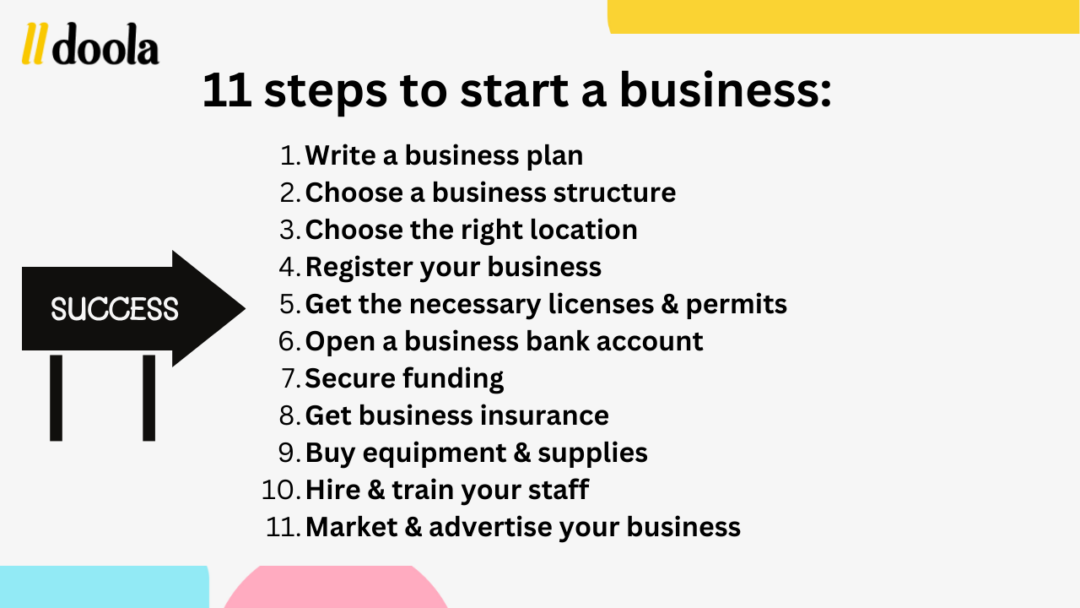Language:
200 Inspiring Christian Business Names for Your Company

If you’re looking to start a new Christian business or rebrand your existing one, choosing the right name is important.
A Christian business name not only identifies your company but also reflects the values and mission that you stand for. When it comes to selecting the perfect name, there are a variety of factors to consider.
From creating a memorable identity to standing out in a crowded market, your business name plays a major role in your success.
In this article, we’ll explore some Christian business name ideas and how they can help you connect with your desired audience.
Why a Christian Business Name Is Important
With the rise of secularism in today’s world, it’s becoming increasingly crucial for Christian businesses to create a brand message that accurately reflects their beliefs.
Opting for a Christian business name can show potential customers that your business operates with trustworthiness, reliability, and integrity that aligns with your faith.
It’s a powerful way to let the world know your business has a higher purpose beyond just making a profit.
You’re dedicated to spreading the good word and making a positive impact, not just about the bottom line.
Tips for Choosing the Best Christian Business Name
To choose a name, think about the values and mission of your business.
You want this name to reflect your Christian beliefs and convey a sense of purpose and meaning to your potential customers.
Here are tips for choosing a Christian business name that aligns with your beliefs:
Decide on the Products or Services You’re Offering
Your name should reflect what you’re selling or providing since it’s the basis of your business. Select a name that aligns with your Christian values and also showcases the products or services you’ll be offering.
For example, if you’re selling books, it’s best to choose a name that references reading or books, rather than opting for an obscure or irrelevant title.
Your name should be focused, helping potential customers easily understand what your business is all about. By selecting a name that accurately represents your products or services, you can create a strong brand identity and attract the right audience to your business.
Check Your Competitors
It’s a good idea to research other Christian businesses in the same industry to get an idea of the types of names they use.
This research can help you avoid choosing a name that is too similar to another business, which can confuse customers. Reviewing the names of other businesses can provide inspiration and ideas for your own Christian business name.
By examining the names of successful Christian businesses in your industry, you can gain a better understanding of what works and what doesn’t when it comes to Christian business names.
Take note of the language, tone, and messaging used in the names, as well as any biblical references or Christian symbolism incorporated into the names.
This research can help you create a unique and memorable Christian business name that sets you apart from the competition.
Choose a Name That Is Creative but Not Offensive
Choose a name that is not only creative but also easy to remember and spell. Avoid using abbreviations or complicated words that could confuse potential customers.
Incorporating a biblical reference into your business name can help set your business apart from competitors and communicate your mission to potential customers.
For example, if you sell natural beauty products, you could use the name “Crown of Glory” inspired by the biblical reference in 1 Corinthians 11:15, where it says “But if a woman have long hair, it is a glory to her: for her hair is given her for a covering.”
Ask for Feedback From Family and Friends
Before finalizing your name, seek feedback from trusted friends, family, and colleagues. Get their thoughts on whether the name captures the essence of your brand and resonates emotionally.
Check if the Domain Name Is Available
A domain name is like your business’s online home address. To make it easy for customers to find you online, you’ll want both names to match.
You can use websites like GoDaddy or Namecheap to search for a domain name and see if someone else has already claimed it. If the domain name is available, you can buy it and use it for your business website.
Not sure how to register your business as an LLC? Get a free consultation with one of doola’s experts!
200 Christian Business Name Ideas
Here are 25 Christian name ideas for your business:
- Faithful Flavors
- Blessed Bites
- Heavenly Harvest
- The Good Seed Co.
- Graceful Gifts
- Servant Solutions
- Redeeming Resources
- Victorious Ventures
- Christ-Centered Creations
- Light and Life
- Kingdom Keys
- Holy Homes
- Abundant Offerings
- Divine Delights
- Praise Party
- Sacred Sanctuary
- Spirit Savvy
- Gospel Goods
- Pure Praises
- Eden’s Embrace
- Hopeful Hearts
- Righteous Renewal
- Miracle Makers
- Soulful Snacks
- Faithful Finds
- Faithful Solutions
- Graceful Ventures
- Kingdom Commerce
- Crossroads Enterprises
- Blessed Business Co.
- Divine Designs LLC
- Crown & Glory Inc.
- Redeeming Ventures
- Proverbs Partners
- His Will Trading Co.
- Abundant Blessings Business
- Faithful Foundations Inc.
- Zion Ventures LLC
- Shepherd’s Enterprises
- Light of Life Enterprises
- Christ’s Commerce
- Holy Heights LLC
- Heavenly Harvest Business
- Spirit & Truth Trading Co.
- Graceful Living
- Believer’s Best
- Crossroads Co.
- Redeemer’s Resources
- Blessed Boutique
- Hopeful Homes
- Spirit-Filled Services
- Abundant Assets
- Shepherd’s Shop
- Covenant Creations
- Fervent Fashions
- Sacred Supplies
- Divine Designs
- Anointed Apparels
- Scripture Scents
- Godly Groceries
- Faithful Florals
- Holy Health
- Hallelujah Housewares
- Redeemed Real Estate
- Blessed Beads
- Purposeful Products
- Faith and Fitness
- Heavenly Haircuts
- Heavenly Homestead
- Faithful Finances
- Glory Gifts
- Joyful Journeys
- Righteous Retail
- Divine Décor
- Faithful Farmstead
- Spirit-Sent Services
- Virtuous Ventures
- Purely Prayers
- Holy Hues
- Blessed Books
- Kingdom Kitchen
- Rejoice and Restore
- Soulful Supplies
- Divine Draperies
- Anointed Accessories
- Scripture Supplies
- Praise Pest Control
- Godly Gear
- Faithful Furniture
- Blessed Baskets
- Purposeful Prints
- Faith and Family
- Heavenly Hardware
- Redeemed Resources
- Blessed Bling
- Graceful Greetings
- Holy Home Goods
- Righteous Remedies
- Faithful Flowers
- Godly Gadgets
- Kingdom Kuts
- Rejoice and Renew
- Spirit-Sent Solutions
- Holy Haberdashery
- Blessed Beauty
- Kingdom Kandles
- Faithful Furnishings
- Praise Prints
- Godly Gardens
- Faithful Foods
- Heavenly Hues
- Redeemed Rags
- Purposeful Provisions
- Faithful Fashions
- Heavenly Homes
- Blessed Bakes
- Divine Design Co.
- Hopeful Hues
- Abundant Adventures
- Cross Country Travel
- Serene Scents
- Christ’s Creations
- Savior Solutions
- Praise Properties
- Eternal Eats
- Holy Health Co.
- Divine Deliveries
- Heartfelt Homes
- Christian Cuts
- Spirit Stones
- Living Light Co.
- Graceful Gardens
- Abundant Accessories
- Kingdom Kitchens
- Christ’s Cabinets
- Faithful Fitness
- Savior Salon
- Blessed Bathrooms
- Divine Decor
- Hopeful Hangers
- CrossFit Christ
- Serenity Spa
- Joyful Jams
- Christ’s Clothing Co.
- Savior Sports
- Praise Productions
- Eternal Energy
- Holy Harvest
- Blessed Bags
- Graceful Gadgets
- Redeemed Renovations
- Sacred Spaces
- Blessed Beauty Co.
- Divine Dining
- Heartfelt Healing
- Christian Cleaning
- Spirit Soaps
- Living Legacy Co.
- Graceful Grilling
- Abundant Apparels
- Christ’s Carpentry
- Heavenly Homeschooling
- Savior Security
- Praise Party Co.
- Blessed Banners
- Divine Diapers
- Hopeful Hats
- FaithWorks Co.
- Graceful Goods
- Crossroads Marketplace
- Fishers of Men Enterprises
- Glory Goods
- Providence Trading Co.
- Hopeful Harvest
- Crowned Creations
- Shepherdâs Shoppe
- Christâs Corner
- Abundant Acres
- Praise Products
- Cross-Cultural Co.
- Redeeming Retail
- Light of Life Trading Co.
- Heart & Soul Store
- Holy Hill Trading Co.
- Godly Goods
- Sacred Supply Co.
- Faithfully Fashioned
- Heaven Sent Enterprises
- Truthful Treasures
- Faithful Footwear Co.
- Chosen Creations
- Love & Light Co.
- Angelic Accessories
- Glory Be Trading Co.
- Purely Pious Products
- Prodigal Profits
- Holistic Healing Co.
- Crosswise Commerce
- Mercy Marketplace
- Christ-Like Clothing Co.
*Note: The names listed above are intended for inspiration only. Names may be in use and or availability subject to change.
Consider your products or services, as well as your target audience, when selecting a name.
How to Start Your Business
Naming a business is the fun part. After you’ve picked the right name for your Christian business, there are steps you’ll need to take to start your business.
Develop a Business Plan
First and foremost, developing a business plan is crucial for any Christian business. Not only does it provide you with direction, but it also allows you to establish a clear understanding of your target market, competition, and financial projections.
The plan should include a mission statement, executive summary, market analysis, financial projections, and an overview of your products or services.
Think of it as a business roadmap. Be very specific and clear.
Choose Your Business Structure
Once you have your business plan in place, the next step is to decide on the appropriate business structure.
There are four primary business structures to choose from – sole proprietorship, Limited Liability Company (LLC), partnership, and corporation.
Each has its unique advantages and disadvantages, so you’ll want to make sure you weigh the pros and cons of choosing the right option for your Christian business.
Sole Proprietorship
A sole proprietorship is the simplest and cheapest form of business ownership. In this structure, you have complete control over your business and all of the profits it generates. The downside is that you’re also personally liable for any debts, liabilities, or legal issues that arise.
Limited Liability Company (LLC)
A Limited Liability Company (LLC) is a legal structure that provides the same benefits as a sole proprietorship for a Christian business but with greater protection from personal liability.
This means that if the business faces legal action or financial difficulty, the personal assets of the LLC’s owners are generally protected.
Forming an LLC requires a more complex process compared to a sole proprietorship, and also requires a formal operating agreement to outline the management structure, ownership shares, and distribution of profits and losses.
While this may seem daunting, an operating agreement can be a useful tool for Christian business owners to establish clear guidelines based on their shared values and beliefs.
By outlining expectations and responsibilities upfront, the LLC can operate smoothly.
Partnership
In the context of a Christian business, a partnership allows two or more individuals to share ownership and responsibility for the business while also aligning their values and beliefs.
It can be a great way to bring complementary skills, resources, and ideas to the table, while also ensuring that the business operates with integrity and Christian principles.
However, partnerships also come with shared risks and rewards, as well as potential conflicts over control and decision-making. Christian partners need to establish clear communication and guidelines based on their shared values and goals so that everyone is on the same page and conflicts can be resolved in a Christ-like manner.
Corporation
A corporation is a legal structure that can offer several benefits for a Christian business, including the ability to raise funds by selling stock to investors.
As a separate legal entity, a corporation provides the highest level of protection for personal assets, meaning that owners’ personal finances are separate from the finances of the corporation.
However, forming and operating a corporation can be complex and expensive, with more paperwork, regulations, and taxes than other business entities.
As a Christian business, it’s important to consider whether the additional costs and regulations align with your values and goals.
That said, a corporation can offer more flexibility in terms of ownership and governance, allowing owners to structure the business in a way that aligns with their Christian beliefs and mission.
Choose the Right Location
The location of your Christian business is crucial for attracting customers, employees, and suppliers. Consider factors such as accessibility, visibility, and competition.
Also, make sure the location aligns with your Christian values and mission.
Register Your Business
Depending on your state, you may need to file a variety of paperwork and pay some fees, but it’s a relatively straightforward process.
Check with your Secretary of State or Department of Commerce to determine what specific forms you need to submit and how much it will cost you to register your Christian business.
Obtain Licenses and Permits
Once you’ve registered your Christian business, the next step is obtaining the necessary permits and licenses. Depending on your industry, you may be required to get a business license, tax ID number, or sales tax permit.
Some states have more rigorous requirements than others, so again, be sure to check your local regulations to ensure you’re meeting all the necessary criteria.
If you’re planning on operating your Christian business out of a physical space, you’ll need to obtain any required building permits or zoning approvals.
The specific licenses and permits you’ll need also depend on the type of Christian business you’re starting. For example, if you’re running a Christian bookstore, you’ll likely need a retail license and a resale certificate.
On the other hand, if you’re starting a Christian counseling service, you may need a professional license or certification.
Open a Business Bank Account
You’ll need to gather all your business paperwork (like your articles of incorporation, Employer Identification Number (EIN), and any applicable state registrations) and head to your local bank.
They’ll guide you through the process of setting up a business checking account that’ll allow you to manage your finances effectively.
Get Business Insurance
All entrepreneurs should focus on protecting their business investments and Christian businesses are no exception. Anything can happen.
You protect yourself and your business by getting business insurance, such as liability and property insurance. To determine the type of coverage you need, do thorough research, and consult an insurer that specializes in providing coverage for small Christian businesses.
This way, you can ensure that your business is protected from any unforeseen circumstances that may arise.
Get Funding
Getting a new Christian business off the ground isn’t cheap, but don’t worry, there are plenty of options available to help you out. Look into getting a small business loan from a bank or consider crowdfunding through a platform like Kickstarter.
You could also reach out to local organizations (like churches or business associations) to see if they have any grant opportunities available for religious businesses.
Buy Equipment and Supplies
You’ll need to purchase various items such as computers, furniture, tools, or raw materials, depending on the nature of your business.
Try to find suppliers who share your Christian values and can provide competitive pricing. Research and approach suppliers that align with your beliefs and negotiate prices with them.
This way, you can ensure that your business upholds Christian values while also obtaining the necessary resources to operate effectively.
Hire and Train Your Staff
Because the focus is on your religious beliefs, you’ll want to hire and train staff members who share your values and mission.
This not only helps to create a positive and cohesive workplace culture but also ensures that your business practices align with your Christian beliefs.
Once you’ve assembled your team, invest in ongoing training and development opportunities to help your staff grow both personally and professionally.
This can include training in customer service, leadership, and conflict resolution, as well as spiritual development programs and Bible studies.
Market Your Business
Marketing your Christian business requires a unique approach that aligns with your values and mission.
Consider using social media platforms to connect with potential customers and share your message. Leverage email marketing to share updates and promotions with your audience.
Participating in in-person events, such as community service projects or charity drives, can also help to build awareness and goodwill for your business.
Incorporate your Christian values and mission into your marketing materials and messaging, and always strive to represent your business with honesty, integrity, and excellence.
Help With Your Faith-Based Business Needs
Choosing a Christian name for your business can be a powerful way to communicate your values and mission to potential customers.
Remember to focus on the products or services you offer, be creative yet not offensive, and check your competitors to avoid choosing a name that’s too similar.
Keep in mind that the name is just the beginning, and there are many other important aspects to consider when starting a Christian business.
doola can help your Christian business with its financial needs, including bookkeeping, tax preparation, and financial planning so that you can focus on growing your business.
Get a free consultation with one of doola’s formation and compliance experts.
FAQs
What should I name my spiritual business?
The name really should reflect your unique business and values. Consider incorporating biblical references or Christian symbolism into your name to communicate your mission and values. Choose a name that is memorable, unique, and easy to pronounce.
Is a Christian business profitable?
Yes, a Christian business can be profitable. Like any other business, success depends on numerous factors like market demand, marketing strategies, and sound financial management. Operating a Christian business also allows for the opportunity to integrate faith-based values and principles into your business practices.
How much does it cost to start a Christian business?
The cost of starting a Christian business depends on various factors including the type of business, location, and size. Some businesses are started with minimal costs, while others may require significant capital investments.
Keep reading
Start your dream business and keep it 100% compliant
Turn your dream idea into your dream business.

















